By Renee Mangum
Senior Project Manager
By 2020, the trend toward remote work was already well underway. The response to COVID-19, however, sent it into hyperdrive. This sudden change strained every facet of how we work—especially the ways we establish and sustain professional relationships.
Though businesses are increasingly returning to the office, it’s clear that hybrid and remote work are here to stay. So even though you may again be performing your job at a brick-and-mortar workplace, now is a good time to reflect on your remote work experience and how it has impacted your professional partnerships. You can be sure that the lessons you learned and strategies you adopted during the pandemic will remain relevant in the months and years ahead.
I recently conducted just such a review and found myself creating the following list of practices I use when collaborating with colleagues while working remotely.
- Take time to get to know your colleagues.
When meeting in person, it’s natural to share the type of small talk that, over time, builds rapport. This can feel more awkward over video conferencing or a phone call, but it’s just as important. Be curious. Without prying, ask questions. Show an interest in who you’re meeting with. - Acknowledge where you are.
Remote work is often accompanied by unexpected interruptions not found in the boardroom. Dishwashers rattle and ding. Pets unexpectedly leap into frame. When disruptions arise, it’s good to acknowledge—then move past—the reality that you’re not in the office. Being honest about this can allow you to better focus on the project at hand. - Don’t assume your colleagues understand your role.
When building new relationships in live settings, it’s common practice to have every participant around the table introduce themselves. Doing so remotely requires just a little more effort—but it’s well worth the time. - Be clear about strengths and expectations.
Whether working remotely or meeting in person, it’s essential that you collaborate to define your shared goals with your colleagues early on. Set expectations and talk through the process ahead. Ask clearly for what you need from your colleagues and explain how you plan to contribute to the partnership to achieve success. - Be proactive.
Projects—particularly in the pharmaceutical industry—can evolve quickly and unexpectedly. Factors beyond your control, such as FDA approval, may impact your timeline. That’s why it’s important never to save for tomorrow what might be accomplished today. This is especially important when working remotely, when separation can cause delays in communication. Get ahead when you can. Seize the initiative. - Invite feedback.
Whether working in person or remotely, feedback from colleagues is an essential part of fostering trust and promoting growth. Keep in mind that remote communication—even video conferencing—prevents seeing most body language and other types of non-verbal communication. Be conscious of how you vocalize your responses and strive not to be defensive. - Be aware of time constraints.
It’s easy to upend your work/life balance when you’re able to be contacted around the clock. Early on, establish—and be respectful of—your colleagues’ preferred business hours. Be clear about your own hours. Keep in mind time differences if colleagues live outside your time zone. - Know when to pick up the phone.
There are so many ways to communicate remotely, but sometimes the phone remains the most efficient option. Video calls require scheduling, texts can be too pithy to relay detailed information, and email chains can quickly get out of hand. A call is often the best way to ask and answer questions and keep the project on track. - Share concerns early.
No one likes to be the bearer of bad news, but communicating roadblocks and pitfalls early on is your responsibility—and is essential for the project’s success. Remember, your partner is relying on you for your experience of past projects as well as your expertise. Don’t wait until a formal assessment at the project’s conclusion to speak up. - Conduct a post-project review.
Once the project you are collaborating on is complete, conduct a review as soon as possible, while the experience is still fresh. Be transparent as you evaluate partnerships, including what went well and how they can improve.
That last tip applies to every aspect of your career, not just when you are collaborating remotely. Continually evaluate your work and actively seek areas where you can learn. No matter where you’re working—in person or from home—that’s a sure recipe for life-long professional growth.
________
Renee Mangum brings nearly 13 years of experience in event and project management to the Encompass team. Through her long-term involvement in customer service and medical nonprofit meeting planning, she possesses excellent communication skills, sharp attention to detail, and budget management expertise.


